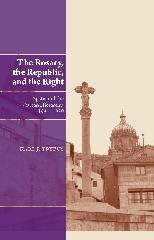The birth of the Second Spanish Republic in April 1931 ushered in a period of possible secularisation to Spain. Liberals welcomed legal changes, while conservatives feared the special 'privileges' they enjoyed would end. The Catholic Church remained a central focus of left-wing antagonism and right-wing allegiances, and conflicts surrounding the future of religion grew severe. While members of the Spanish Catholic hierarchy had clearly supported the right and disdained the left, the actions and opinions of the Vatican and its hierarchy stationed in Spain were much more nuanced. Similarly, when conservative military action plunged Spain into a Civil War in July 1936, the majority of the Spanish Catholic hierarchy openly supported their victory, but the highest levels of the Vatican remained silent. This book explores the unique position and specialised reactions of the Vatican concerning the Second Republic and Civil War. For the Holy See, the conflict in Spain was not an isolated event at the edge of the continent, but part of a larger narrative of ideological and political tension swirling across Europe. Any public statement by the Vatican concerning the Spanish Republic or Civil War could be misconstrued as support for one side or another, and threaten the Church. True, the Vatican often remained silent -- and some have suggested this supports the conclusion that the Church worked for Franco -- but by accessing previously unavailable sources directly from the Vatican, this book can help to clarify the difficult options that awaited the Holy See during this disastrous period. Similarly, this book works to highlight the fact that the Catholic Church was not some monolithic entity, but men like Pope Pius XI and Secretary of State Pacelli had their own understandings of spirituality and politics.

(0 Comentarios)